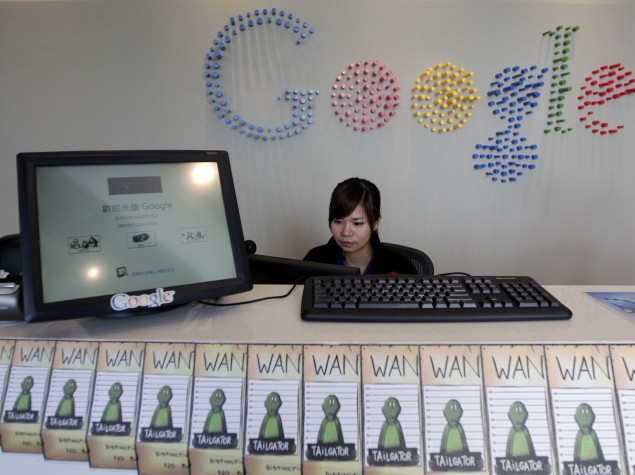- Home
- Others
- Others News
- Big Companies Disclose Too Little on Operations Abroad: Watchdog
Big Companies Disclose Too Little on Operations Abroad: Watchdog

The Berlin-based anti-corruption watchdog named Bank of China, Honda Motor, Bank of Communications, Agricultural Bank of China and Russia's Sberbank as the five least transparent companies.
Bank of China could not be reached for comment on the report. The other four companies declined to comment.
"We need more transparency from multinational companies, whose power in the world economy closely rivals the biggest countries," said Transparency International chairman Jose Ugaz.
"By not responding to people's demands for greater transparency and accountability, companies risk harming their brand and losing customers," he warned.
Around three quarters of the 124 companies assessed do not disclose the taxes they pay in foreign countries and nearly half publish no information on revenues abroad, the report said.
The companies were ranked based on their reporting of their measures to prevent corruption, information about subsidiaries and holdings and information about financial operations abroad.
By those criteria, European companies performed best. Italy's Eni, Britain's Vodafone and Norway's Statoil were the leaders.
"We are committed to providing as much information and insight as possible to support informed public debate on issues such as corporate governance, anti-corruption programmes and corporate taxation," said a spokesman for Vodafone.
While there were six Chinese companies among the 10 worst performers, U.S. corporations also figured.
Warren Buffet's conglomerate Berkshire Hathaway was ranked the sixth least transparent multinational, and the report said major tech companies also performed relatively poorly.
"Surprisingly, the sector that makes greater transparency possible is one of the least transparent," said Transparency. Amazon, Apple, Google and IBM all scored less than three out of 10, the organization said.
A spokesman from IBM said the company was publishing a full list of every subsidiary and country in which it does business every year. That list was part of IBM's annual report.
The other U.S. companies cited declined to comment or were unavailable when asked for a reaction by Reuters. Some did not want to respond until they had seen the complete report.
A spokesperson for Japan's Nippon Telegraph and Telephone Corp, which was also among the bottom 10, said: "We want to continue to work towards appropriate disclosures."
Transparency said the world's biggest oil, gas and mining companies were not yet ready for transparency rules that would enter into force across the European Union from July 2015.
Those regulations require extractive companies to report payments such as taxes to governments on a country-by-country and project-by-project basis. In the United States, similar measures are planned, but implementation has been delayed.
© Thomson Reuters 2014
Get your daily dose of tech news, reviews, and insights, in under 80 characters on Gadgets 360 Turbo. Connect with fellow tech lovers on our Forum. Follow us on X, Facebook, WhatsApp, Threads and Google News for instant updates. Catch all the action on our YouTube channel.
Related Stories
- Samsung Galaxy Unpacked 2026
- iPhone 17 Pro Max
- ChatGPT
- iOS 26
- Laptop Under 50000
- Smartwatch Under 10000
- Apple Vision Pro
- Oneplus 12
- OnePlus Nord CE 3 Lite 5G
- iPhone 13
- Xiaomi 14 Pro
- Oppo Find N3
- Tecno Spark Go (2023)
- Realme V30
- Best Phones Under 25000
- Samsung Galaxy S24 Series
- Cryptocurrency
- iQoo 12
- Samsung Galaxy S24 Ultra
- Giottus
- Samsung Galaxy Z Flip 5
- Apple 'Scary Fast'
- Housefull 5
- GoPro Hero 12 Black Review
- Invincible Season 2
- JioGlass
- HD Ready TV
- Latest Mobile Phones
- Compare Phones
- Tecno Pova Curve 2 5G
- Lava Yuva Star 3
- Honor X6d
- OPPO K14x 5G
- Samsung Galaxy F70e 5G
- iQOO 15 Ultra
- OPPO A6v 5G
- OPPO A6i+ 5G
- Asus Vivobook 16 (M1605NAQ)
- Asus Vivobook 15 (2026)
- Brave Ark 2-in-1
- Black Shark Gaming Tablet
- boAt Chrome Iris
- HMD Watch P1
- Haier H5E Series
- Acerpure Nitro Z Series 100-inch QLED TV
- Asus ROG Ally
- Nintendo Switch Lite
- Haier 1.6 Ton 5 Star Inverter Split AC (HSU19G-MZAID5BN-INV)
- Haier 1.6 Ton 5 Star Inverter Split AC (HSU19G-MZAIM5BN-INV)







![[Partner Content] OPPO Reno15 Series: AI Portrait Camera, Popout and First Compact Reno](https://www.gadgets360.com/static/mobile/images/spacer.png)









